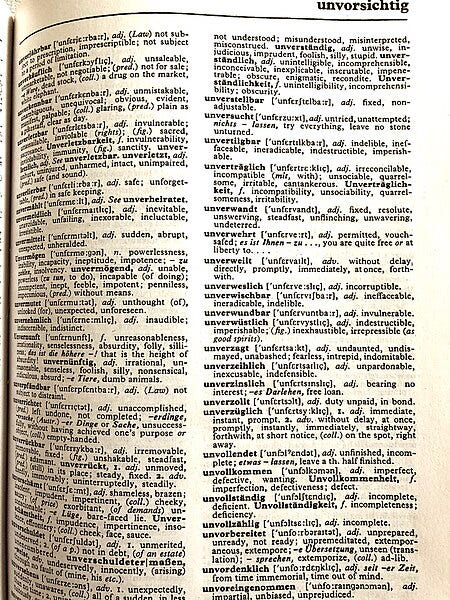This week’s “one I made earlier” went to paying subscribers back in May. If you want to read this stuff as it comes out, rather than late, or possibly never, you know what to do. Take up the summer special offer – must end when the hols do!
Schattenparker: From schatten (shadow) and parker. The type of wuss who parks in the shade because they’re worried about it getting too hot. Curiously specific.
Fernweh: A sort of opposite of heimweh (homesickness; “ferne” means distance). The desire to be a bloody long way from here. A more melancholic version of…
Wanderlust: One of those so useful we’ve borrowed it for English so you don’t need me to explain it at all. For the record, though, it’s a combination of wandern (to hike) and lust (mood).

Talking of words so useful we’ve nicked them:
Schadenfreude: Schaden (damage) and freude (happiness). Apparently there’s a German proverb “Schadenfreude ist die schönste Freude (denn sie kommt von Herzen)”, which translates as “Schadenfreude is the most beautiful kind of joy (because it comes from the heart)”. Watching everything that’s happened to the Conservative party since the autumn of 2021, I truly understand that sentiment.
Another relevant word these last few years is:
Fremdscham: Combines fremd (foreign) and scham (embarrassment). Second-hand embarrassment: a feeling you get while watching someone else do something so excruciating you can’t help but imagine how it must feel.
Also:
Schnapsidee: “Booze idea”. An outlandish notion, of the sort you come up with while hammered, which seems just crazy enough to work... then doesn’t.1
While we’re at it:
Wildpinkler: Someone who urinates in public.
Frühjahrsmüdigkeit: From frühjahr (spring) and müdigkeit (tiredness). A very specific type of lethargy or low mood felt just as the world revives after winter – possibly because of allergies, possibly because of reverse seasonal affective disorder, possibly because you’re some kind of goth. A subset of:
Lebensmüde: From leben (life) and müde (tired). Not just the emotion Samuel Johnson thinks you get when you’re sick of London: a form of depression, the sort of joylessness that makes you long for death.
Weltschmerz: A feeling of overwhelming sadness brought on by your awareness of all the evil and suffering in the world. From welt (world) and schmerz (pain). Originally a sort of literary concept, the slightly-affected world weariness characters in romantic novels felt because of their awareness of reality’s imperfections, but in modern usage generally used to refer to a belief that your own deficiencies are actually because everything happening in the news is completely and utterly awful. That subtle shift in usage does not feel like a good sign.
Torschlusspanik: The anxiety brought on by a looming deadline. From tor (goal), schluss (end, closing) and panik (panic). Apparently used most often in relation to people in their 30s or 40s who don’t have a family, and man that’s a word I really wish I hadn’t just discovered.
Zweisamkeit: A play on einsamkeit (loneliness), which replaces ein (one) with zwei (two), to refer to something like its opposite: a feeling of perfect contentment that comes from being with another person.
Stubentiger: “Living room tiger”. Sometimes this is a cutesy way of describing cats, but can also mean the sort of gruff bloke who gets home and just wants a cuddle, making it roughly analogous to “pussy cat”.
Feuchtfröhlich: From feucht (moist) and fröhlich (joyful). The sense of contentment that comes from having had just the right amount to drink. It translates literally as “wet happy”.
Is this a good time to mention that I don’t actually speak German?
A reminder, in the unlikely event that you need one, that my latest book, A History of the World in 47 Borders: The Stories Behind the Lines On Our Maps, is available now. You can hear me talking about it on the BBC’s History Extra podcast and read an extract from it in this week’s New European.
Also, if you want more of this stuff, then why not:
Like austerity, amirite?


